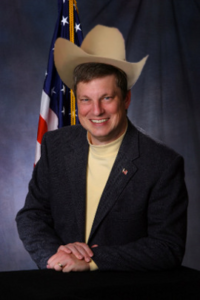
U.S. Senate
See Full Big Line
(D) J. Hickenlooper*
(R) Somebody
80%
20%

Governor
See Full Big Line
(D) Joe Neguse
(D) Phil Weiser
(D) Jena Griswold
60%
60%
40%↓

Att. General
See Full Big Line
(D) M. Dougherty
(D) Alexis King
(D) Brian Mason
40%
40%
30%

Sec. of State
See Full Big Line
(D) George Stern
(D) A. Gonzalez
(R) Sheri Davis
40%
40%
30%

State Treasurer
See Full Big Line
(D) Brianna Titone
(R) Kevin Grantham
(D) Jerry DiTullio
60%
30%
20%

CO-01 (Denver)
See Full Big Line
(D) Diana DeGette*
(R) Somebody
90%
2%

CO-02 (Boulder-ish)
See Full Big Line
(D) Joe Neguse*
(R) Somebody
90%
2%

CO-03 (West & Southern CO)
See Full Big Line
(R) Jeff Hurd*
(D) Somebody
80%
40%

CO-04 (Northeast-ish Colorado)
See Full Big Line
(R) Lauren Boebert*
(D) Somebody
90%
10%

CO-05 (Colorado Springs)
See Full Big Line
(R) Jeff Crank*
(D) Somebody
80%
20%

CO-06 (Aurora)
See Full Big Line
(D) Jason Crow*
(R) Somebody
90%
10%

CO-07 (Jefferson County)
See Full Big Line
(D) B. Pettersen*
(R) Somebody
90%
10%

CO-08 (Northern Colo.)
See Full Big Line
(R) Gabe Evans*
(D) Yadira Caraveo
(D) Joe Salazar
50%
40%
40%

State Senate Majority
See Full Big Line
DEMOCRATS
REPUBLICANS
80%
20%

State House Majority
See Full Big Line
DEMOCRATS
REPUBLICANS
95%
5%
 August 21, 2019 02:11 PM UTC
August 21, 2019 02:11 PM UTC 7 Comments
7 Comments
"under Colorado law"
We need new law.
Cheap shot Pols. No Secretary of State can do their job without $300 boot cut jeans.
This is especially interesting given that 29 states plus DC have some type of legal mechanism regarding electors voting for the state popular vote winner. As it stands today, we assume the winner of these states/DCs will get all the state's electoral votes, but if this ruling holds, I'd like to put in a pitch for as many electors as possible to vote 2Jung2Die in 2020 (I see no joy in actually campaigning)!
With any luck, too young, you will get enough votes to throw the election into the House of Representatives.
I just re-skimmed how a House election would work, and officially withdraw from the race so this won't happen. It's one vote, one state (and DC don't count), which means Rhode Island and California count the same. Plus, a nation that already did not produce a majority in the Electoral College would need to keep voting until there's a majority of the states. Seems about as definitive of who really should win as a shootout in Euro football. From Wikipedia:
Yes, it's a mess, too young. But the only time that happened, the House gave us the estimable John Quincy Adams over the foul Andrew Jackson. The electoral College gave us Trump!
How about we make Puerto Rico a state and just let the House pick future presidents, with each member having one vote.
While the ruling might lead to the NPV winner not being elected as President by the EC, it would not invalidate the NPVIC's mandate to send a slate of electors designated by the winning candidate. The only change NPVIC makes is in defining which electors are chosen – by nationwide rather than statewide vote.
It's a far more interesting question to ask what happens if a candidate fails to qualify for a participating state's ballot altogether…